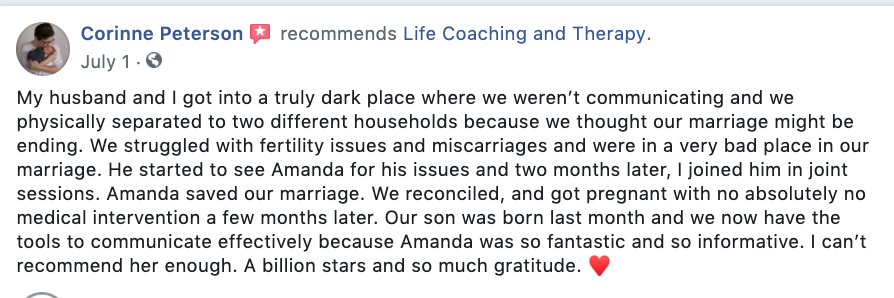Tips on How to Save Your Marriage – Once and For All!
Tips on How to Save Your Marriage – Once and For All!
Relationships are hard and learning how to save your marriage is harder; yet, worth it. This is not to say it is all downhill once you walk down the altar.
I cannot lie and say it is all rose petals and no thorns, though.
Marriage is a complex component made up of legal bindings. It also falls under the category of romantic love and wanting your partner to be your everything.
Sure, you have made it from the long-term relationship title into a completely different one – spouse, or husband, or wife.
Marriages require effort, communication, and a lot of other things that may be made clear in this article.
Marriage is beautiful, yet sometimes it isn’t measured in years because it can end.
If you happen to find “your person,” having a successful marriage is a process to learn to love for both of you.
Each couple is unique, and your situation and circumstances are different.
As much as we would like a fairytale relationship and marriage, our expectations are often underwhelmed.
We are sold what marriage looks like in movies, books, music, and television. However, that is just a snapshot. It doesn’t often show the systemic process of the intense process that marriage is.
There are different reasons that contribute to a couple drifting apart. Since each couple is different, these reasons range from unfaithfulness to a lack of communication to a desire discrepancy.
We cannot promise that these tips and exercises will help save your particular marriage, yet it has worked for many of our clients.
Some of the ways to start the journey back to being a happy couple include:
1.Re-evaluate why you became a couple
The decision to be together did not come out of the blue. Both of you weighed your options and decided it was the best thing to do. This was way back, before the wedding and even kids. Before you said yes to marriage, the question to be their partner came first. Why did you decide on them? On the person you cannot stand now.
Ask yourselves what attracted you to each other. Was it their smile or work ethic? Their humanity or kindness? Their suffering? Their potential?
This will remind you why you fell in love in the first place. It will have both of you reminiscing on a time before you discovered the flaws you see now. Your partner was once this person, and they can be that person for you if they want to.
2.Write down important things
Putting your feelings into words is therapy in itself. You can both write a whole list about your partner. What you like about them and what kept you by their side.
After writing down a list of all the things you appreciate about your partner, see if they want to receive it.
Write down where you envision your new relationship future.
Write down the steps on how to get there!
It is also important to write down where you want the relationship to go, because how can you get somewhere without visualizing it first?
Are there conversations you both need to have? Are children in your future?
This will help you visualize a future with your partner, which is the whole point of how to save your marriage.
3.Set boundaries
Try telling your spouse what they do that has you feeling insecure. Own it with nonviolent communication.
- Is it them staying out late during weekends?
- Are they spending less time with you?
- Do you need them to help out more around the house?
Example: I feel _____ when I have the thought that you are spending less time with me. I am requesting that we _____. Are you able to do that, or can you offer another strategy?
You need to set reasonable requests, and abide by them as well when you are asked.
If you ask your partner to be back home by 7 p.m. on a Saturday, you need to ask them what they would like as an alternative strategy for them. Maybe they want you home at the same time, or maybe they would rather when you come home late that you give them a massage.
This negotiation for a collaboration cultivates trust in both individuals, and we all know the importance of trust in our relationships.
4.Show appreciation
Make a conscious note to appreciate your partner’s efforts.
- Notice when they change a hairstyle or buy a new article of clothing.
- Appreciate when they help out around the house.
- Give compliments like you just met.
- Act as if everything they do is the greatest thing you have seen and watch as your love blossoms.
- People like to be noticed for their efforts.
For example, if your husband fixes a leak in the kitchen sink, give him a big hug and kiss and say “thank you. I feel so loved right now.” He will feel great about helping out and do it more often.
It keeps him happy and provides you with the help you desire around the house. A WIN / WIN!
5.Communicate
Miscommunication is a huge damper in relationships. Couples who do not voice their feelings end up holding a lot of remorse and resent.
Make clear and respectful communication a huge part of your routine. Talking about your feelings towards your partner helps unburden you. It also allows them a chance to correct themselves in an effort to make the marriage work.
6.Do something special together
You can set a day weekly aside according to your schedules.
- Spend this day with your partner.
- You can decide to get dressed up and go out to a restaurant for a fun date.
- You can also decide to stay in, order take out and watch movies all day.
The important thing is to spend quality time doing something special. Use this time to connect and bond with your spouse and talk about erotic opportunities.
How to save your marriage requires effort from both parties though.
Long-term relationships have their struggles and nothing is ever smooth sailing all the time.
You both need to come to the decision that the marriage is failing and needs some work.
Avoid talking to external parties about your partner, unless they are trained professionals.
Address all issues with your spouse within the week, as communication is key.
If you need further help with how to save your marriage, please visit us or another licensed professional marital therapy.
About Life Coaching and Therapy
Life Coaching and Therapy (LCAT) is a therapy and coaching practice that transforms our clients lives through our flexibility multi-technique approach and pleasure-skills training provided by systematically trained and licensed therapists!
Get to know our founder and owner, Amanda Pasciucco, (a.k.a. The Sex Healer) PhD, Licensed Marriage and Family Therapist (LMFT), and an AASECT Certified Sex Therapist (CST) who has developed innovative therapy programs and therapy videos that get results.
Our team of compassionate, licensed therapists and certified sex therapists helps all clients who visit us for a variety of personal, relationship, intimacy and sex problems.
LCAT provides on-site appointments, as well as video chat and text therapy programs.
Learn more about how LCAT can help improve your life at What We Do.
































